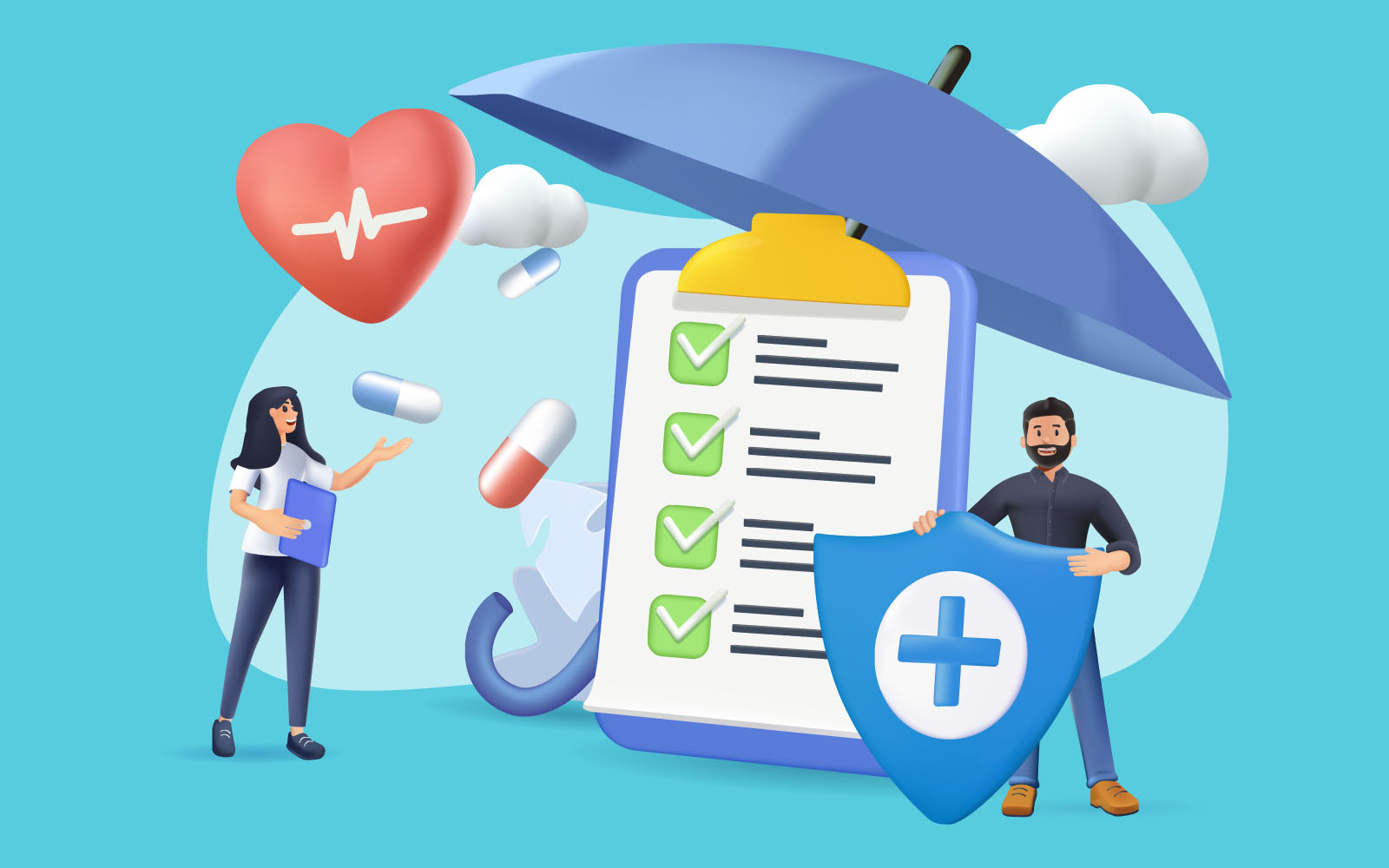Introduction:
In today’s unpredictable world, safeguarding our health is a top priority. Health uncertainties can strike at any moment, and the associated financial burdens can be overwhelming. This underscores the significance of having comprehensive health insurance as a crucial element of a secure tomorrow. This article explores the various facets of comprehensive health insurance, delving into its importance, key features, and the peace of mind it provides in the face of unforeseen health challenges.

I. The Current Healthcare Landscape:
The global healthcare landscape is constantly evolving, with medical advancements and innovations emerging regularly. While these advancements have improved our ability to combat diseases, they have also led to an increase in healthcare costs. Routine medical check-ups, diagnostic tests, and the expenses associated with chronic illnesses can pose a significant financial burden on individuals and families.
II. Understanding Comprehensive Health Insurance:
Comprehensive health insurance goes beyond the basic coverage provided by standard health plans. It encompasses a wide range of medical expenses, offering financial protection for hospitalization, surgeries, outpatient care, prescription medications, and preventive services. This type of insurance provides policyholders with peace of mind, knowing that they are covered for a broad spectrum of healthcare needs.
III. Key Features of Comprehensive Health Insurance:
- Hospitalization Coverage:
- Comprehensive health insurance typically includes coverage for hospitalization expenses, which can include room charges, doctor’s fees, surgical procedures, and other associated costs.
- Outpatient Care:
- Unlike basic plans, comprehensive health insurance often covers outpatient care, including visits to specialists, diagnostic tests, and preventive screenings.
- Prescription Medications:
- The cost of prescription medications can be a significant financial burden. Comprehensive health insurance helps alleviate this by covering a portion of or the entire cost of necessary medications.
- Chronic Illness Management:
- Individuals with chronic illnesses require ongoing medical attention. Comprehensive health insurance provides coverage for the management and treatment of chronic conditions, ensuring that policyholders can access necessary healthcare services without facing exorbitant expenses.
- Maternity Coverage:
- Many comprehensive health insurance plans offer maternity coverage, providing financial support for prenatal care, childbirth, and postnatal care.
- Emergency Care:
- Accidents and emergencies can happen unexpectedly. Comprehensive health insurance ensures that policyholders receive timely and adequate medical care in emergency situations.
IV. The Financial Impact of Health Insurance:
- Protection Against High Medical Costs:
- Without health insurance, individuals may find themselves burdened with astronomical medical bills. Comprehensive health insurance acts as a financial safety net, protecting policyholders from the potentially ruinous costs of healthcare.
- Preventive Care:
- Comprehensive health insurance encourages preventive healthcare by covering the costs of routine check-ups and screenings. This proactive approach can lead to early detection and management of potential health issues, ultimately reducing long-term healthcare expenses.
- Financial Stability:
- A major illness or injury can lead to loss of income due to extended periods of medical leave. Comprehensive health insurance helps maintain financial stability by covering medical costs and allowing individuals to focus on recovery without worrying about financial strain.
V. Navigating the Health Insurance Landscape:
- Choosing the Right Plan:
- Selecting the right comprehensive health insurance plan requires careful consideration of individual needs, budget constraints, and coverage options. Comparing different plans and understanding their terms and conditions is crucial in making an informed decision.
- Network of Healthcare Providers:
- Examining the network of healthcare providers associated with the insurance plan is essential. A robust network ensures that policyholders have access to a wide range of medical facilities and professionals.
- Policy Exclusions and Limitations:
- It is important to thoroughly understand the exclusions and limitations of a health insurance policy. Being aware of what is not covered helps individuals plan for potential out-of-pocket expenses.
VI. The Role of Technology in Health Insurance:
- Digital Health Records:
- The integration of digital health records with insurance platforms enhances the efficiency of claims processing and ensures seamless communication between healthcare providers and insurers.
- Telemedicine Services:
- Many comprehensive health insurance plans now include telemedicine services, allowing policyholders to consult with healthcare professionals remotely. This not only improves accessibility but also reduces the need for physical visits to medical facilities.
VII. Planning for a Secure Tomorrow:
- Financial Planning and Emergency Funds:
- While comprehensive health insurance provides a safety net, having a robust financial plan and emergency fund further strengthens one’s ability to cope with unexpected healthcare expenses.
- Lifestyle Choices and Preventive Measures:
- Adopting a healthy lifestyle and preventive measures can significantly reduce the likelihood of health issues. Comprehensive health insurance complements these efforts by providing coverage for unforeseen circumstances.
Conclusion:
In conclusion, securing tomorrow’s well-being requires a proactive approach to healthcare, and comprehensive health insurance plays a pivotal role in this endeavor. The ever-changing healthcare landscape and the rising costs of medical care necessitate the need for a comprehensive health insurance plan that provides financial protection and peace of mind. By understanding the key features, navigating the insurance landscape, and embracing technology, individuals can ensure a secure and healthy tomorrow for themselves and their loved ones.
